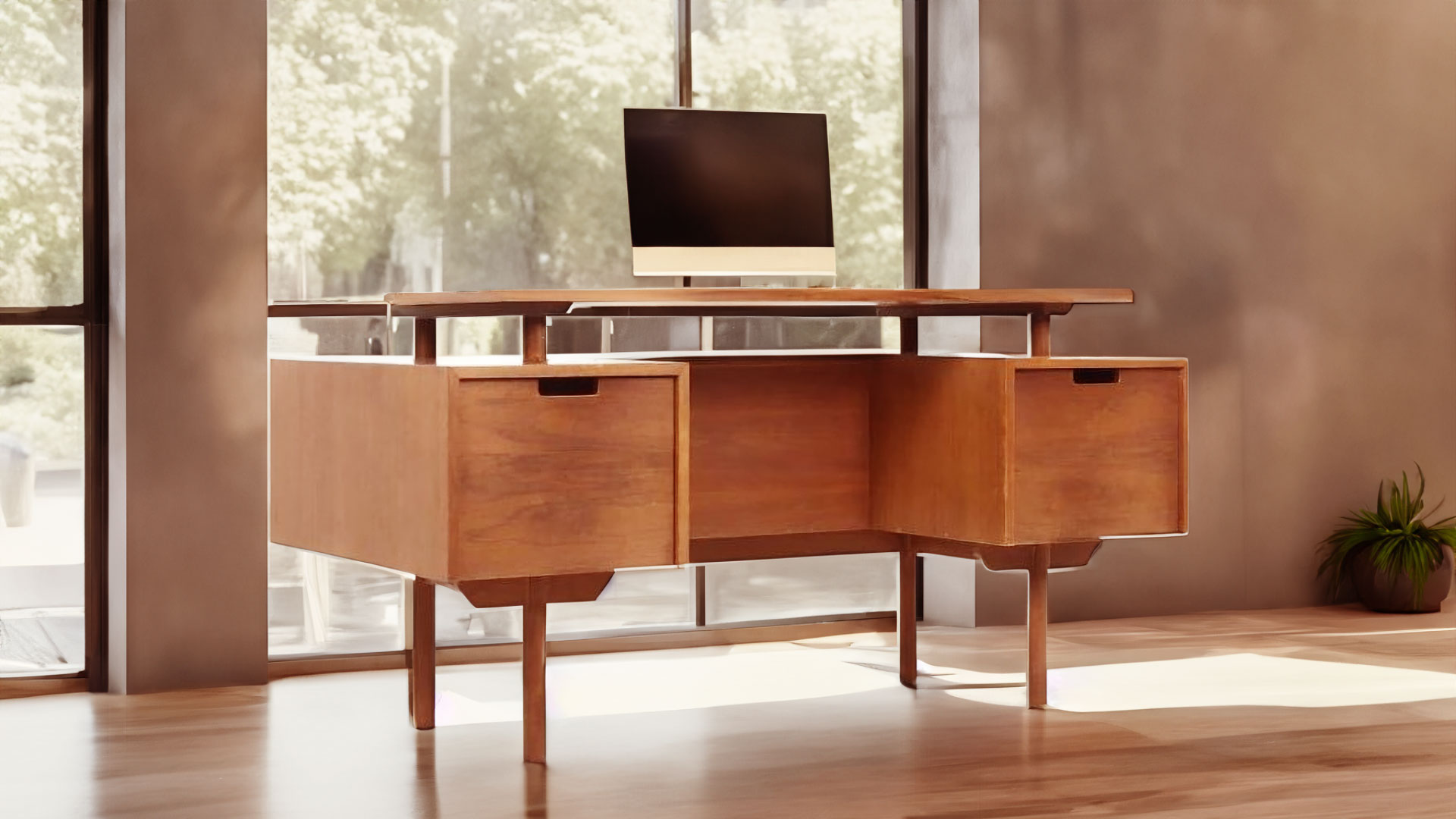Milo Baughman
Milo Baughman was a pioneering American furniture designer whose creations became synonymous with the mid-century modern design movement. His innovative designs and forward-thinking approach to furniture design left a lasting impact on the industry and continue to be celebrated and sought after by collectors, designers, and homeowners alike.
Born in Goodland, Kansas, in 1923, Milo Ray Baughman Jr. spent his formative years in California, where his family relocated during the Great Depression. As a teenager, he developed a keen interest in design and architecture, inspired by the works of iconic designers such as Frank Lloyd Wright and Ludwig Mies van der Rohe.
After serving in the Army Air Forces during World War II, Baughman pursued his passion for design by enrolling in the Art Center School of Los Angeles (now ArtCenter College of Design). He studied product and architectural design, laying the foundation for a successful career in the furniture industry.
In 1947, at 24, Baughman founded Milo Baughman Design Inc. and began designing furniture that embodied his unique approach to modernism. His creations were characterized by clean lines, simple forms, and a focus on functionality, which resonated with the post-war American public looking for fresh and contemporary designs.
Baughman's early designs gained recognition for their innovative use of materials and minimalist aesthetics. He experimented with various materials, including metal, glass, and different types of wood, and was known for combining these elements seamlessly.
In the early 1950s, Baughman began a long-lasting collaboration with Thayer Coggin, a North Carolina-based furniture manufacturer. Their partnership, which spanned over 50 years, resulted in some of the most iconic mid-century modern furniture pieces, such as the Flatbar Lounge Chair, the T-Back Lounge Chair, the Barrel Swivel Lounge Chair, the Case Sofa, and the Burlwood Coffee Table.
The Flatbar Lounge Chair is a perfect example of Baughman's signature design style, featuring a minimalist chrome frame paired with comfortable upholstered cushions. This elegant and functional piece has become a staple in mid-century modern design. The T-Back Lounge Chair, another iconic creation, showcases Baughman's ability to combine geometric forms with plush upholstery to create a visually striking and comfortable seating option.
The Barrel Swivel Lounge Chair epitomizes Baughman's innovative design approach. The chair offers style and functionality with its distinctive curved shape and swiveling base. The Case Sofa, a versatile and timeless design, is known for its sleek frame and emphasis on comfort. Finally, the Burlwood Coffee Table, which pairs a stunning burlwood top with a polished chrome base, demonstrates Baughman's appreciation for natural materials and attention to detail.
In addition to these iconic designs, Baughman created numerous other innovative pieces throughout his career, such as the Scoop Lounge Chair, Cube Club Chair, Cantilevered Lounge Chair, Recliner Lounge Chair, Sliding Door Credenza, and Floating Wall-Mounted Desk. His extensive body of work is a testament to his exceptional talent and dedication to his craft.
Throughout his career, Baughman remained faithful to the principles of modernism, focusing on functionality, simplicity, and the use of quality materials. In addition, he believed that good design should be accessible to everyone and resisted the notion of design as an elitist practice. This approach made his designs popular with a broad audience, and they continue to be celebrated as icons of mid-century modern design.
Milo Baughman passed away in 2003 at 80, leaving behind a remarkable legacy that has left an indelible mark on furniture design. His work has been exhibited at prestigious institutions, such as the Whitney Museum of American Art and the Los Angeles County Museum of Art, and he has been featured in numerous publications, documentaries, and retrospectives that celebrate his contributions to design.
Baughman's influence on mid-century modern design is still felt today, as his designs inspire contemporary designers and manufacturers. In addition, his innovative approach to furniture design, which emphasized the importance of form and function, has become a guiding principle for many in the industry.
There has been a resurgence of interest in Baughman's work in recent years, with his original pieces commanding high prices at auctions and vintage furniture stores. This renewed appreciation for Baughman's designs reflects their timeless appeal and the enduring relevance of his design philosophy.
Milo Baughman's career spanned over five decades, during which he created an extensive portfolio of furniture designs that helped define the mid-century modern aesthetic. His innovative use of materials, minimalist forms, and emphasis on functionality set the stage for a new era of design that continues to influence the furniture industry today.
His partnership with Thayer Coggin resulted in some of the most iconic pieces of the mid-century modern era. Their collaboration remains a testament to the power of creative synergy. Together, they produced furniture designs that were visually striking but also functional and accessible, breaking down barriers between art and everyday living.
Baughman's work has left a lasting impact on furniture design, and his creations continue to be admired and sought after by collectors, designers, and homeowners alike. His dedication to making good design available to everyone and his belief in the importance of form and function has cemented his place in the pantheon of great designers.
Milo Baughman's life and work serve as a testament to the transformative power of design. His innovative creations have transcended time, inspiring generations of designers and shaping mid-century modern furniture design. As we continue to celebrate and appreciate his iconic designs, Baughman's legacy endures, a reminder of the impact one person's vision and talent can have on the world of design.


















